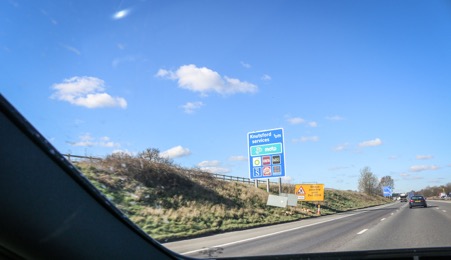You’re excited for your big trip, the cars packed, you’re with your best friends and you’ve just set off. But then it starts to happen; you start to go pale and a cold sweat breaks out, you start feeling dizzy and get that familiar acidic taste in your mouth, you ask to pull over but before you know it…BLERGH. Being travel sick can be a real pain, so we’ve come up with the best known ways of avoiding and treating it.
Prevention
- It’s advised you avoid certain foods before travelling:
- Foods that don’t agree with you should obviously be avoided.
- Foods with strong odours aren’t ideal for a long car journey.
- Foods that are prone to making you feel too full.
- Foods that are very spicy or high in fat.
- Where you decide to sit in the car is very important. Avoid facing backwards on your journey. It’s recommend that you sit in a positon where you do not feel as much motion, often in the front seat or over the wheels on a coach.
- A range of medicines can be used to help prevent travel sickness:
- Hyoscine – widely used to treat sickness but with side effects of drowsiness, blurred vision and dizziness.
- Antihistamines – Used to treat symptoms of allergies, it can also help control nausea and vomiting. Although not as effective as Hyoscine, it doesn’t have as many side effects.
- Drivers are less inclined to feel sick while travelling, it’s believed that because you’re controlling the car your mind can better predict the motion of it. Jump in the driver’s seat and let the road be a welcome distraction.
- If you really struggle with travel sickness, you can try desensitisation therapy. It works by exposing yourself to what makes you feel sick, reading in a car for example, then building yourself up to longer periods. Your body eventually gets used to it.
Treatment
If you start to feel sick, it’s a good idea to make the driver and other passengers aware. They may need some notice to find somewhere safe to pull over.
- The first thing you should do if you’re feeling sick is to open a window or vent, fresh air can help alleviate your symptoms.
- Motion sickness is often caused by objects moving outside, therefore shutting your eyes can help, or better yet, take a nap. Sometimes you can sleep travel sickness off.
- Ginger is known to alleviate motion sickness – there’s a number of products that contain ginger; tea, biscuits, ale, chews and cookies. Ginger can also be used prior to travelling as a preventative measure.
- Dry food is known to help soak up excess acid in the stomach which can help people suffering with travel sickness. Soda crackers, breadsticks, dry cereal and pretzels are all said to be effective.
- You can try acupressure, if you apply pressure to the underside of your wrist it is said to help with nausea. There are also wrist bands available, these have small plastic bumps that apply pressure.
- Avoid reading or texting as it can make your symptoms worse, instead focus on a fixed point such as the horizon.
- Keep yourself occupied and distracted, if you think about being sick it can increase that feeling. You can try carrying out a mental task, such as counting backwards from 100 or try focusing solely on your breathing.
Children and dogs
Many of the same rules apply for children, if they are prone to napping try and arrange travel around napping time. Keeping them distracted throughout the journey can be the most effective way of avoiding car sickness. If they’re really struggling, pull over to a safe place and get them to lie on their back with their eyes closed.
When travelling with dogs, stress can be a factor in causing sickness. To make the journey as stress free as possible, check out our previous blog on travelling with your dog. You can tell if your dog is suffering as they begin to whine, excessively drool, become inactive and general look uneasy. Fresh air, distractions, frequent stops and an empty stomach are all effective treatments for car sickness in canines. Alternately your vet can prescribe motion sickness medication for dogs or you can use a natural pet calmer.







